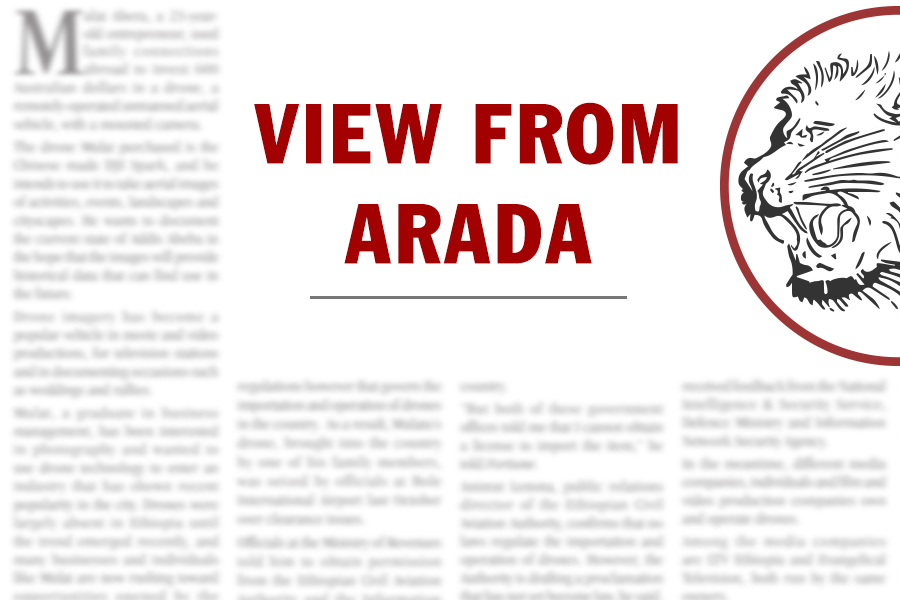
View From Arada | Oct 08,2022
Aug 22 , 2020.
The political buzz phrase has always been "national dialogue," a process of deliberation over the very soul and meaning of the Ethiopian state. But it is a phrase that finds relevance every time the country is in a state of uncertainty, causing a great sense of anxiety and stress to citizens.
Initially and often, the call for national dialogue comes out of a position of weakness, including from those holding state power. But power gets consolidated, and the incumbent eventually no longer feels compelled to pretend to go through the motions. The notion of a national dialogue is downplayed once again only to be resurrected with the unravelling of the state generations later.
This is true of Ethiopia’s current state of politics. With the short-lived euphoria of welcoming back into the political space dissident groups that had long been persona non grata, having the bargain to reach a compromise on the system, laws and institutions of the state once seemed urgent; and, even possible. But that was politics.
What Ethiopia has now is toxic political warfare, which leaves very little room for bargaining.
But the idea of a grand bargain seems to have not died entirely, if not misconstrued and oversimplified. Prime Minister Abiy Ahmed (PhD) raised it in a recent meeting with leaders of the non-state sector, where the discussions were mainly about law and order and the diplomatic tussle over the Grand Ethiopian Renaissance Dam (GERD). Thrown in almost as an afterthought was as of still an unspecified dialogue platform for “national consensus.”
The Prime Minister's take on the need for “elite bargain” has gone relatively unnoticed. He was dismissive of the call for a grand bargain, considering it a ploy to scramble for political office. For him, the concept of a grand bargain represents one of power-sharing among unelected and self-appointed elites.
Conceptualised in the simplest terms, this can appear doable. In the context of post-conflict states, it has been reimagined as a glorified form of political-dealmaking, where power and economic resources are redistributed between elites.
At best, this is an attempt to contain conflicts through formal laws and institutions. Constitutions are rewritten, and institutions are redesigned to fit the general and current interests of the contending parties. At worst, this is power-sharing a la present-day South Sudan. Rent and power are negotiated in a desperate attempt to quell powerful appetites and avoid violent conflicts through all means. It is a peace deal where each side reluctantly accepts the other’s right to a share of resources and authority, but no other binding rules to the game are agreed upon.
In both cases, the structural ailments that lead to conflict are unaddressed. It is apparent why the latter - a mere peace deal - would fail to last.
Indeed, it is hard to lay blame on those that find the notion of a grand bargain impossible, lest not under the current circumstances. It seemed insincere, considering that such a platform has not been created over the past two years when the opposition was better organised, in relative terms. Partly, it could be because the vitriol and violence have become too severe to believe that amends can be made and compromise can be reached.
There has never been a time where such a compromise has ever been made. Ethiopia remains a place where the winner takes all, and the losers count their losses until such time that fate is flipped.
But achieving a broader consent on the most fundamental architecture of the Ethiopian state and the rules of the game can only be arrived at meaningfully through an inclusive grand bargain, which would need to take into account historical grievances, structural and systemic disparities, as well as social inequalities.
It needs to take on the desperate need to find shared aspirations among the contending parties of the million shades in the grey zone. It can also be about arriving at a common understanding of historical narratives of generations, or avoiding them, and what precisely the concept of “self-determination” embodies within the Ethiopian state. Even in the best of times, these goals seem to be a demand of the tallest order.
A political settlement of sorts was attempted almost three decades ago, but to the exclusion of groups determined to reject the worldview of the winners. The victors, rebel groups that coalesced around the EPRDF, had entered Addis Abeba determined to reimagine the Ethiopian state through a vision for the devolution of power and resources. They dismantled the institutions of a unitary state built through triumph and tribulations of over a century. They drafted a new Constitution by a process they attempted to have underwritten through public forums.
Regrettably, the process of installing a new constitutional order had marginalised a significant segment of society that believed it had been robbed of a country, as the outcome was a document which cemented the aspirations of the victors and allies. This group was hell-bent on having none of the deal for the devolution of power away from the centre. Neither did it get in return a concession for giving up dearly held convictions on the way the Ethiopian state was reimagined and reconstructed.
Even of those oppositions contented with the new formula, nothing meaningful was obtained. By the time the second national elections were held in 2000, it had become evident that no strong opposition was left standing in the ring. It was a testament to how the absence of grand political settlements led to another bout of violent unravelling two decades later.
Lack of inclusivity was harmful. The EPRDFites' growing hegemony, at the expense of other players, did not help. Most importantly, they did not manage to address the social schisms that existed and made politics too dysfunctional to affix laws and institutions over. There was no grand bargain where the consent to contend by the various players and interests was agreed upon.
A mere attempt to close a chapter and open a new one through the pigeonhole of formal laws and institutions was thus like applying salve to an ailment deep in the bone marrow. Ethiopia’s fundamental political failings are not political or economic, as they are a societal illness that has given way to "stunted communities."
In such communities, “opinions cannot be argued, for they go straight to the problematic question of community," wrote Donald Horowitz, professor of law & political science at Duke University, explaining what "stunted communities" look like. “Intimacies cannot be shared, for aspirations diverge. Traditions cannot be celebrated jointly, for they are often contested. And public life is segmented, but contact cannot be avoided.”
This is a good description of Ethiopia today. The elements that characterise its dysfunctions cannot be hashed out through political deal-making only. The awarding of public offices and rent to political players would not cut it. Even broader political deals agreed to by leaders of political parties being respected will not do the trick. They already have one signed at the Addis Abeba Hilton a year and a half ago, a document none of the signatories care to remember now.
Contrary to the reductionist view, a grand bargain needs to go deeper, considering formal and informal engagements and agreements between groups, as represented by their respective elites. There are structures that determine the behaviours of elites - from demographics to natural resources - and agents that govern the relationship between elites and their constituencies, such as rivalries along with ideological and emotional factors. There are also formal and informal frameworks that elites operate within, including the forms and means of violence and legitimacy.
All of these factors need to be considered, discussed, negotiated and agreed upon to govern relations between power and individuals, communities and cultures. A grand bargain is a process more than it is an endpoint and a means of accommodation of diverging interests, collective fears and dearly-held honours than political deal-making. It is not a political contract. It is a process of arriving at an acceptable social contract.
Anything less than this is at best a well-intentioned and convenient elite compromise, somewhat akin to the founding of the United States, which eventually led to a civil war. At worst, it is an exercise in futility similar to many Middle Eastern and African countries that are characterised by perpetual political uncertainty and instability.
Prime Minister Abiy, the current custodian of the Ethiopian state, can make a prudent choice in leaving a lasting legacy. It is not, however, in repeating what his predecessors did in reconstructing the Ethiopian state in their own image. He can be remembered as a statesman who helped factions of an extremely polarised society reach a grand bargain in reimagining the Ethiopian state, its system, laws and institutions. Such is a consent to contend for political power.
PUBLISHED ON
Aug 22,2020 [ VOL
21 , NO
1060]

View From Arada | Oct 08,2022

Commentaries | Jul 02,2022

Sunday with Eden | Apr 26,2025
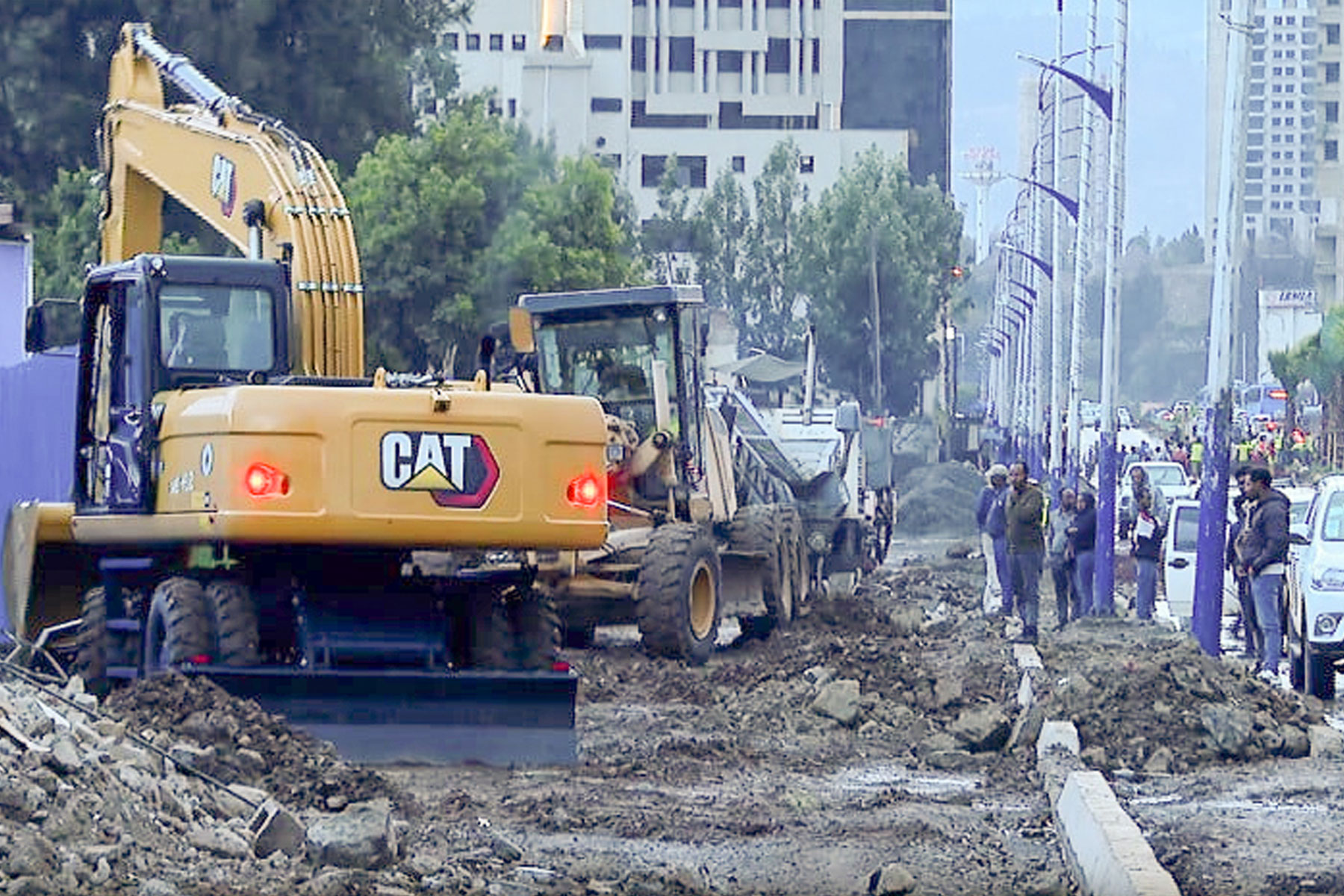
Fortune News | May 11,2024
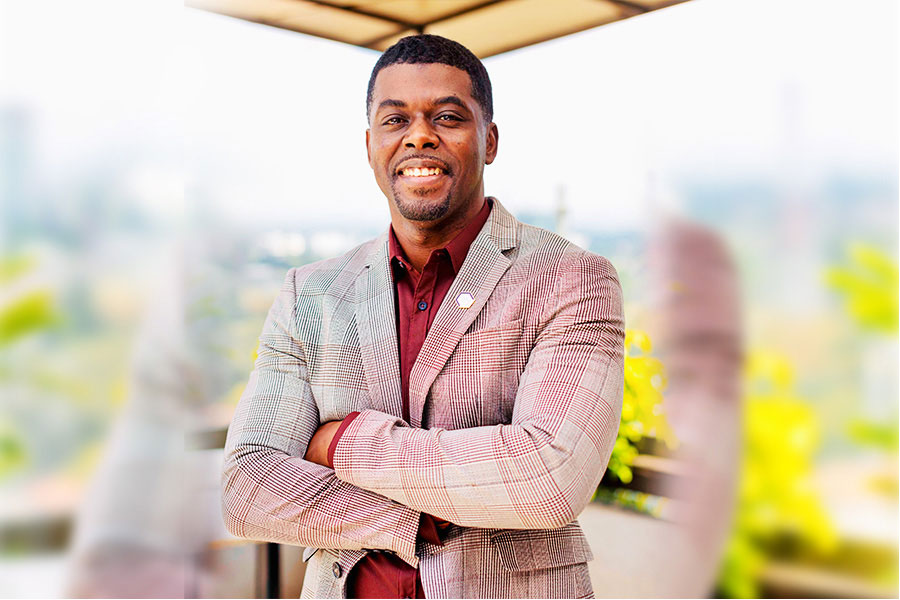
Sponsored Contents | May 02,2023
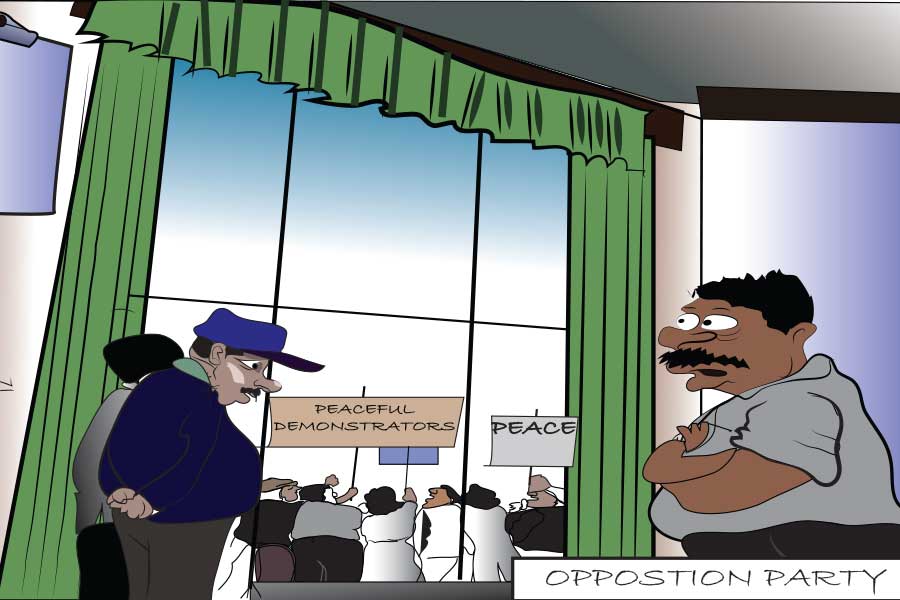
Editorial | Sep 28,2019

Viewpoints | Jan 07,2024
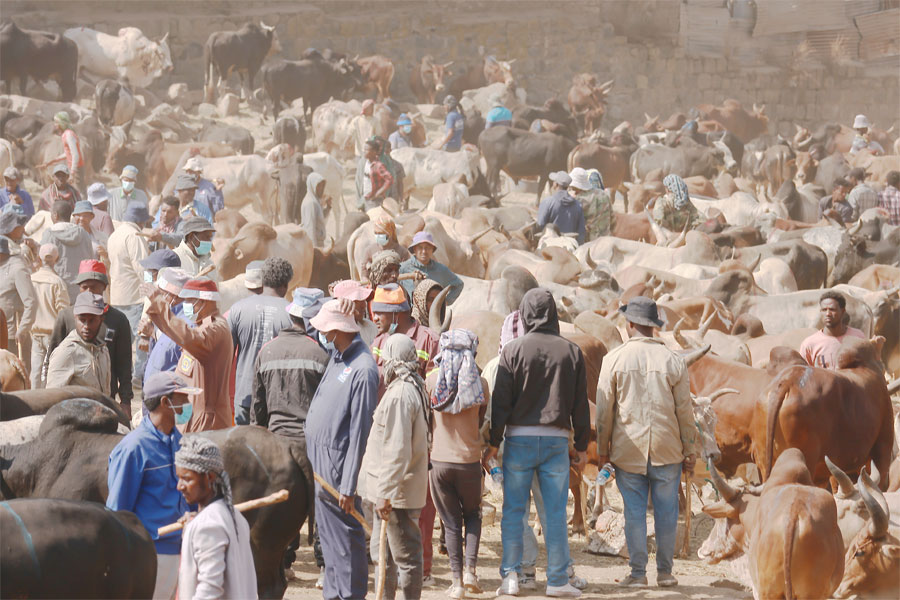
Agenda | Jan 07,2024
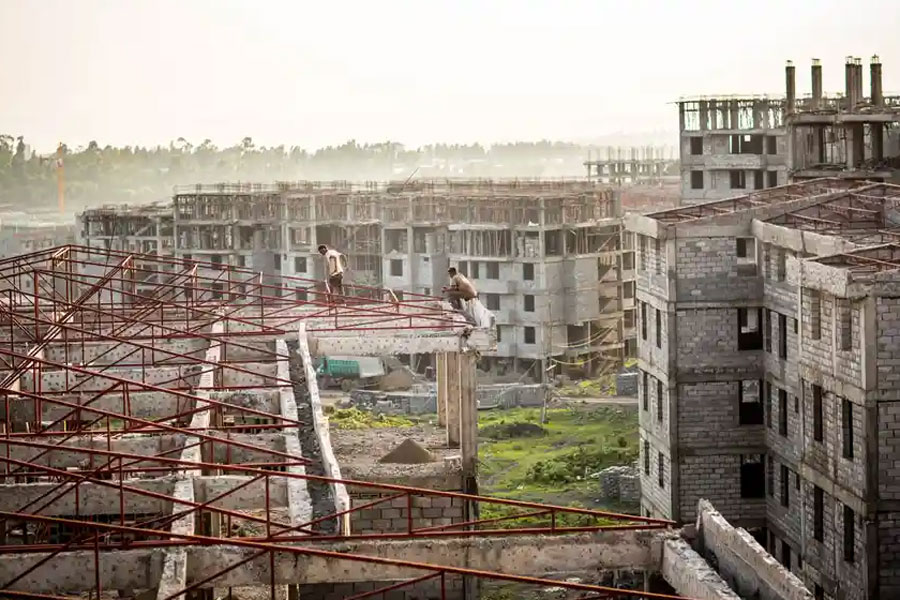
Fortune News | Apr 02,2022

View From Arada | Feb 19,2022

My Opinion | 131548 Views | Aug 14,2021

My Opinion | 127903 Views | Aug 21,2021

My Opinion | 125879 Views | Sep 10,2021

My Opinion | 123510 Views | Aug 07,2021

Dec 22 , 2024 . By TIZITA SHEWAFERAW
Charged with transforming colossal state-owned enterprises into modern and competitiv...

Aug 18 , 2024 . By AKSAH ITALO
Although predictable Yonas Zerihun's job in the ride-hailing service is not immune to...

Jul 28 , 2024 . By TIZITA SHEWAFERAW
Unhabitual, perhaps too many, Samuel Gebreyohannes, 38, used to occasionally enjoy a couple of beers at breakfast. However, he recently swit...

Jul 13 , 2024 . By AKSAH ITALO
Investors who rely on tractors, trucks, and field vehicles for commuting, transporting commodities, and f...

Jun 29 , 2025
Addis Abeba's first rains have coincided with a sweeping rise in private school tuition, prompting the city's education...

Jun 29 , 2025 . By BEZAWIT HULUAGER
Central Bank Governor Mamo Mihretu claimed a bold reconfiguration of monetary policy...

Jun 29 , 2025 . By BEZAWIT HULUAGER
The federal government is betting on a sweeping overhaul of the driver licensing regi...

Jun 29 , 2025 . By NAHOM AYELE
Gadaa Bank has listed 1.2 million shares on the Ethiopian Securities Exchange (ESX),...